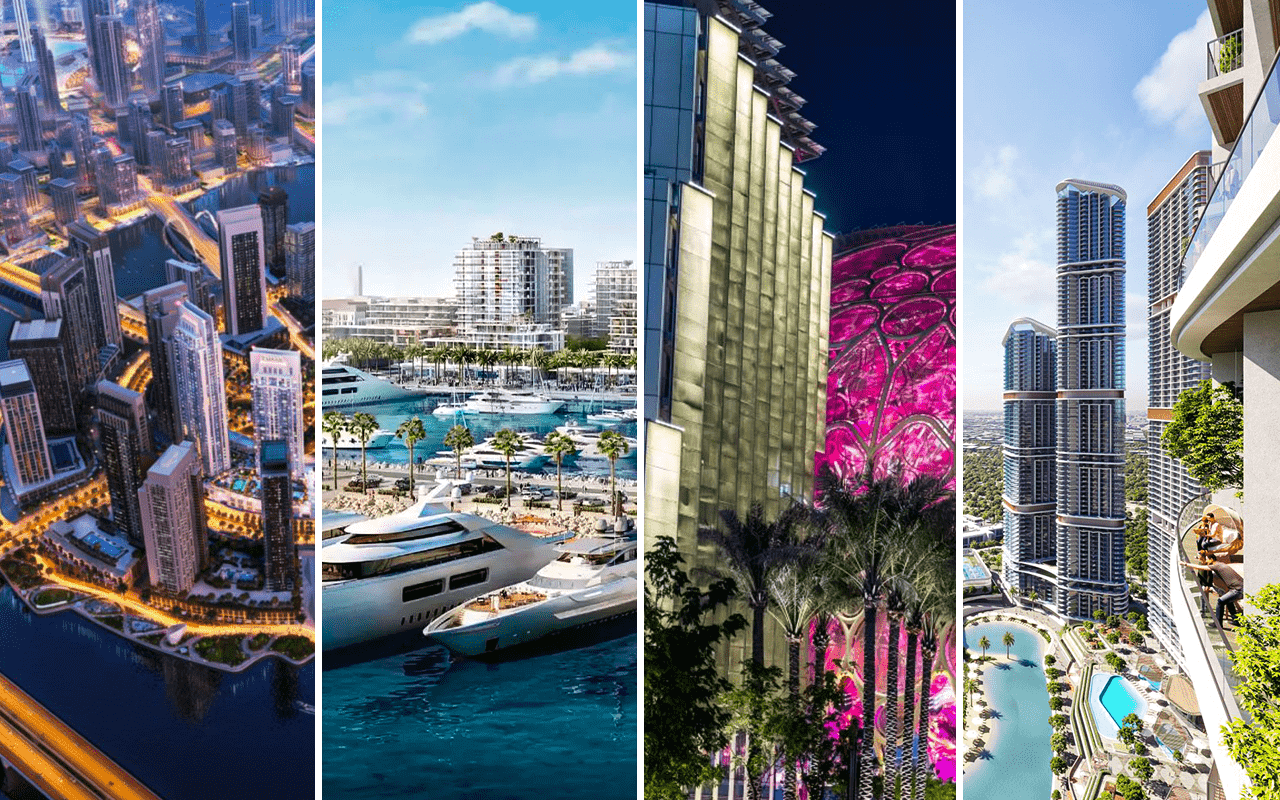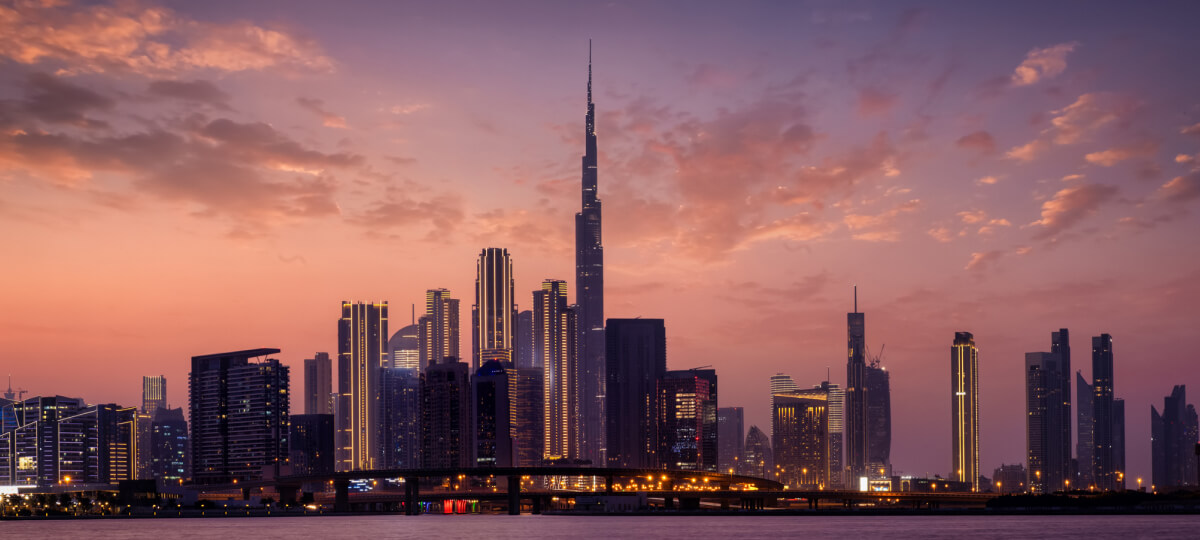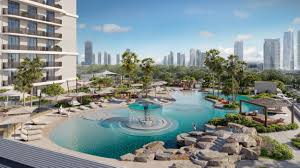Now Reading: Dubai Real Estate: 5 Urban Zones Offering New Tax Reduction Strategies in 2025
-
01
Dubai Real Estate: 5 Urban Zones Offering New Tax Reduction Strategies in 2025
Dubai Real Estate: 5 Urban Zones Offering New Tax Reduction Strategies in 2025

Table of Contents
Dubai’s real estate market, valued at AED 761 billion ($207 billion) in 2024 with 226,000 transactions, continues its upward trajectory in 2025, fueled by a 5% population increase, 25 million projected tourists, and a 6.2% GDP growth, per Deloitte and Emirates NBD. Mixed-use urban zones, blending residential, commercial, and retail spaces, dominate new developments, comprising 85% of projects, per JLL.
These zones offer 7-10% rental yields and align with Dubai’s 2040 Urban Master Plan for sustainable, connected communities. Dubai’s tax-free framework no personal income tax, capital gains tax, or annual property taxes ensures 100% profit retention, unlike markets with 15-30% tax burdens, per IRS and HMRC data.
The UAE dirham’s peg to the U.S. dollar eliminates currency risk, and properties over AED 2 million ($545,000) qualify for the Golden Visa (10-year residency), per UAE immigration laws. Residential resales and rentals are VAT-exempt, per Federal Decree-Law No. 8 of 2017, and free zone companies enjoy zero corporate tax for up to 50 years, per Federal Decree-Law No. 47 of 2022, if avoiding mainland transactions.
The 15% Domestic Minimum Top-up Tax (DMTT) for multinationals with revenues over AED 3 billion ($816 million) starts January 1, 2025, but individual investors and SMEs are exempt, per damacproperties.com. New tax reduction strategies for 2025 include VAT recovery optimization for off-plan purchases, free zone corporate structures, and intra-group transfer exemptions, per taxsummaries.pwc.com. Below are five urban zones in Dubai offering these strategies for tax-optimized investments in 2025.
1. Dubai South
Dubai South, a free zone near Al Maktoum International Airport, integrates residential, logistics, and commercial spaces, with 15-25% value growth projected by 2030, per Whitewill. Projects like Emaar Southbay (AED 1.5 million-$5 million, $408,000-$1.36 million, 6-8% yields) offer 800-3,000 sq. ft. apartments with handover in Q4 2025. Initial costs include a 4% DLD fee ($16,320-$54,400), 2% broker fee ($8,160-$27,200), and 5% VAT ($20,400-$68,000, recoverable), totaling $44,880-$149,600. A 60/40 payment plan requires a 10% deposit ($40,800-$136,000).
Tax Reduction Strategies:
- VAT Recovery Optimization: Off-plan purchases allow VAT recovery on construction services (5%, $20,400-$68,000), reducing upfront costs if registered with the Federal Tax Authority (FTA), per FTA User Guide.
- Free Zone Corporate Structure: Register a free zone company to own properties, securing zero corporate tax on rental income ($2,856-$9,520 annually) and intra-group transfer exemptions, saving $5,712-$19,040 at a hypothetical 20% rate, per taxsummaries.pwc.com.
- Small Business Relief: Revenues under AED 3 million ($816,000) eliminate corporate tax until December 31, 2026, per UAE CT Law.
- No Capital Gains Tax: Saves $40,800-$136,000 on a $204,000-$680,000 gain (50% appreciation). VAT-exempt resales save $20,400-$68,000.
- U.S. Investor Deductions: Deduct depreciation ($14,836-$49,455), management fees ($2,285-$7,616), saving $3,424-$18,374 at 20-37% tax rates, per IRS Publication 527. File IRS Form 5471.
- Green Incentives: DEWA-registered sustainable designs save $2,000-$4,000 annually on utility bills.
Total Annual Tax Savings: $25,735-$92,914, exceeding initial costs, supporting tax-free returns of $25,704-$85,680.
Investment Strategy: Register a free zone company to purchase 3-bedroom apartments for expat professionals, leveraging VAT recovery, corporate tax exemptions, and intra-group transfer benefits near Expo City.
2. Dubai Creek Harbour
Dubai Creek Harbour, a free zone with the upcoming Creek Tower, offers residential, retail, and hospitality spaces, with 6-6.8% yields, per Whitewill. Projects like Creek Waters (AED 1.5 million-$5 million, $408,000-$1.36 million, 6-8% yields) offer 700-2,500 sq. ft. units with handover in Q4 2025. Initial costs include a 4% DLD fee ($16,320-$54,400), 2% broker fee ($8,160-$27,200), and 5% VAT ($20,400-$68,000, recoverable), totaling $44,880-$149,600. A 70/30 payment plan requires a 10% deposit ($40,800-$136,000).
Tax Reduction Strategies:
- VAT Recovery Optimization: Recover 5% VAT ($20,400-$68,000) on off-plan purchases through FTA registration, per FTA User Guide.
- Free Zone Corporate Structure: Free zone company ownership ensures zero corporate tax on $31,730-$96,890 rental income, saving $2,856-$8,720 annually, and intra-group transfer exemptions, saving $6,346-$19,378 at a hypothetical 20% rate.
- Small Business Relief: Eliminates corporate tax for revenues under AED 3 million.
- No Capital Gains Tax: Saves $40,800-$136,000 on a $204,000-$680,000 gain. VAT-exempt resales save $20,400-$68,000.
- U.S. Investor Deductions: Deduct depreciation ($14,836-$49,455), management fees ($2,538-$7,751), saving $3,475-$18,374 at 20-37% tax rates. File IRS Form 5471.
- Green Incentives: Sustainable designs save $2,000-$4,000 annually on DEWA bills.
Total Annual Tax Savings: $25,735-$92,914, exceeding initial costs, supporting tax-free returns of $28,560-$87,200.
Investment Strategy: Register a free zone company to purchase 2-bedroom apartments for expats, leveraging VAT recovery and corporate tax exemptions near Dubai Creek.
3. Jumeirah Village Circle (JVC)
JVC, a free zone with 33 parks and Circle Mall, offers affordable mixed-use developments, with 17,523 transactions worth AED 20.6 billion in 2024, per alba.homes. Projects like Samana Waves (AED 0.479 million-$1.5 million, $130,000-$408,000, 8-10% yields) offer 400-1,200 sq. ft. units with handover in Q1 2025. Initial costs include a 4% DLD fee ($5,200-$16,320), 2% broker fee ($2,600-$8,160), and 5% VAT ($6,500-$20,400, recoverable), totaling $14,300-$44,880. A 100/0 payment plan requires a 10% deposit ($13,000-$40,800).
Tax Reduction Strategies:
- VAT Recovery Optimization: Recover 5% VAT ($6,500-$20,400) on off-plan purchases, per FTA User Guide.
- Free Zone Corporate Structure: Free zone company ownership eliminates corporate tax on $10,400-$40,800 rental income, saving $1,040-$4,080 annually, and intra-group transfers save $2,080-$8,160 at a hypothetical 20% rate.
- Small Business Relief: Eliminates corporate tax for revenues under AED 3 million.
- No Capital Gains Tax: Saves $13,000-$40,800 on a $65,000-$204,000 gain. VAT-exempt resales save $6,500-$20,400.
- U.S. Investor Deductions: Deduct depreciation ($4,727-$14,836), management fees ($832-$3,264), saving $1,112-$5,522 at 20-37% tax rates. File IRS Form 5471.
- Green Incentives: Save $1,000-$2,500 annually on DEWA bills.
Total Annual Tax Savings: $10,192-$36,110, exceeding initial costs, supporting tax-free returns of $9,360-$36,720.
Investment Strategy: Register a free zone company to purchase studios for short-term rentals to young professionals, leveraging VAT recovery and high yields near Al Khail Road.
4. Business Bay
Business Bay, a free zone near DIFC and Dubai Canal, integrates offices, retail, and apartments, with 91,897 sales transactions in H1 2025, per Espace Real Estate. Projects like Peninsula Four (AED 1.2 million-$4 million, $326,000-$1.09 million, 6-8% yields) offer 600-2,500 sq. ft. units with handover in Q2 2025. Initial costs include a 4% DLD fee ($13,040-$43,600), 2% broker fee ($6,520-$21,800), and 5% VAT ($16,300-$54,500, recoverable), totaling $35,860-$119,900. A 70/30 payment plan requires a 10% deposit ($32,600-$109,000).
Tax Reduction Strategies:
- VAT Recovery Optimization: Recover 5% VAT ($16,300-$54,500) on off-plan purchases, per FTA User Guide.
- Free Zone Corporate Structure: Free zone company ownership eliminates corporate tax on $22,820-$87,200 rental income, saving $2,282-$8,720 annually, and intra-group transfers save $4,564-$17,440 at a hypothetical 20% rate.
- Small Business Relief: Eliminates corporate tax for revenues under AED 3 million.
- No Capital Gains Tax: Saves $32,600-$109,000 on a $163,000-$545,000 gain. VAT-exempt resales save $16,300-$54,500.
- U.S. Investor Deductions: Deduct depreciation ($11,855-$39,636), management fees ($1,826-$6,976), saving $2,736-$17,227 at 20-37% tax rates. File IRS Form 5471.
- Green Incentives: Save $1,500-$4,000 annually on DEWA bills.
Total Annual Tax Savings: $18,359-$79,387, exceeding initial costs, supporting tax-free returns of $20,540-$78,480.
Investment Strategy: Register a free zone company to purchase 1-bedroom apartments for corporate tenants, leveraging VAT recovery and corporate tax exemptions near DIFC.
5. Dubai Hills Estate
Dubai Hills Estate, a free zone with golf-course views and Dubai Hills Mall, blends villas, apartments, and retail, with 6-8% yields, per Bayut. Projects like Emaar Collective 2.0 (AED 1 million-$3 million, $272,000-$816,000, 6-8% yields) offer 600-2,000 sq. ft. units with handover in Q2 2025. Initial costs include a 4% DLD fee ($10,880-$32,640), 2% broker fee ($5,440-$16,320), and 5% VAT ($13,600-$40,800, recoverable), totaling $29,920-$89,760. A 60/40 payment plan requires a 10% deposit ($27,200-$81,600).
Tax Reduction Strategies:
- VAT Recovery Optimization: Recover 5% VAT ($13,600-$40,800) on off-plan purchases, per FTA User Guide.
- Free Zone Corporate Structure: Free zone company ownership eliminates corporate tax on $19,040-$57,120 rental income, saving $1,904-$5,712 annually, and intra-group transfers save $3,808-$11,424 at a hypothetical 20% rate.
- Small Business Relief: Eliminates corporate tax for revenues under AED 3 million.
- No Capital Gains Tax: Saves $27,200-$81,600 on a $136,000-$408,000 gain. VAT-exempt resales save $13,600-$40,800.
- U.S. Investor Deductions: Deduct depreciation ($9,891-$29,673), management fees ($1,523-$4,570), saving $2,283-$12,468 at 20-37% tax rates. File IRS Form 5471.
- Green Incentives: Save $1,500-$3,500 annually on DEWA bills.
Total Annual Tax Savings: $16,911-$60,160, exceeding initial costs, supporting tax-free returns of $17,136-$51,408.
Investment Strategy: Register a free zone company to purchase 2-bedroom apartments for families, leveraging VAT recovery and corporate tax exemptions near Dubai Hills Mall.
New Tax Reduction Strategies for 2025
- VAT Recovery Optimization: Off-plan purchases allow investors to recover 5% VAT ($6,500-$68,000) on construction services by registering with the FTA and structuring transactions through free zone entities, reducing upfront costs, per FTA User Guide.
- Free Zone Corporate Structures: Establishing a free zone company for property ownership ensures zero corporate tax on rental income ($1,040-$19,040 annually) and exempts intra-group transfers and corporate restructurings (e.g., mergers) from tax, saving $2,080-$19,378 at a hypothetical 20% rate, per taxsummaries.pwc.com.
- Small Business Relief: Revenues under AED 3 million ($816,000) eliminate corporate tax until December 31, 2026, per UAE CT Law, ideal for individual investors and SMEs.
- No Capital Gains Tax and VAT-Exempt Resales: Saves $13,000-$136,000 on capital gains and $6,500-$68,000 on resales, maximizing returns compared to markets with 20-30% taxes.
- U.S. Investor Deductions: Report rental income on Schedule E, deducting depreciation ($4,727-$49,455), maintenance ($2,000-$6,000), management fees ($832-$7,751), mortgage interest ($20,000-$40,000 for a $500,000-$1 million loan at 4%), and capital improvements, per IRS Publication 936. Foreign assets over $50,000 (single filers) or $100,000 (joint filers) require Form 8938, and accounts over $10,000 need an FBAR, with penalties up to $100,000 for non-compliance.
- Non-U.S. Investor Benefits: No UK capital gains tax for non-residents saves 20-28% on gains, per HMRC. Double taxation treaties with 130+ countries prevent dual taxation, per UAE Ministry of Finance.
- Green Incentives: DEWA-registered sustainable designs save $1,000-$4,000 annually on utility bills, aligning with Dubai’s 2040 Urban Master Plan.
Risks and Mitigation Strategies
Dubai’s real estate market projects a 5-7% price increase in 2025, driven by 25 million tourists and the Dubai Economic Agenda D33, per Espace Real Estate. Risks include off-plan delays (e.g., Samana Waves), oversupply (41,000 new units in 2025), and global economic fluctuations, per dxboffplan.com.
Mitigate by selecting trusted developers like Emaar and Samana, verifying escrow compliance under the 2025 Oqood system, and targeting high-demand zones like Dubai South and Business Bay. Confirm VAT recovery eligibility and proof of funds compliance to avoid fines up to AED 500,000, per Dubai Land Department. Consult a tax professional for FTA registration and corporate structuring.
Why These Urban Zones in 2025?
These five urban zones—Dubai South, Dubai Creek Harbour, JVC, Business Bay, and Dubai Hills Estate—offer high rental yields (6-10%), VAT exemptions, and new tax reduction strategies like VAT recovery and free zone corporate structures. With Dubai’s investor-friendly policies, infrastructure growth, and alignment with the 2040 Urban Master Plan, these zones maximize tax-free returns in high-demand, mixed-use communities.
In conclusion, these urban zones leverage Dubai’s tax-free environment and new 2025 tax reduction strategies to deliver high returns with minimal tax exposure. By partnering with reputable developers and utilizing free zone structures, investors can optimize profits in a thriving real estate market. Urban Zones
read more: Dubai Real Estate: 7 Mixed-Use Zones With Tax Optimization Potential in 2025






















